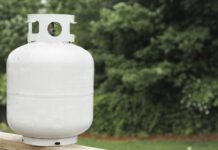The United States produces over 200 million tons of garbage every year. About 140 tons of it make it into landfills, and not all of it can be broken down. The 26 million tons of plastic can sit there for years.
So, what can you do about it?
The answer is recycling at home. Everything you throw away can serve a higher purpose than being in your garbage can.
You can do some cool things with used wine corks, and your old furniture can be cleaned up and given to someone in need. The same goes for your clothes and electronics.
Are you ready to reduce your carbon footprint? Check out this guide for a few fantastic earth-friendly practices.
Plastic
The sad truth is that plastic can’t break down. It will sit in a landfill for years, which is upsetting given that a Waste Container Manufacturer can use it for a lot of cool stuff.
It’s essential to get into contact with your local recycling center before saving your plastics. Not all organizations accept every kind of plastic. There are some that none of them accept.
For example, they won’t take old candy bar wrappers. They also won’t take plastic bags, but your local grocery store might be able to find a use for them.
Black plastics are also a no-go. They’re simple and cheap to work with, but waste sorting systems can’t recognize them.
What you can recycle are milk jugs, juice jugs, water jugs, water bottles, and detergent containers. Dirty plastics interfere with waste sort systems, so you’ll have to wash your containers out before you hand them over. You can either keep the lids on the bottles or throw them away.
Cardboard and Paper
If you want to save a few trees, recycle your paper and cardboard. In most cases, organizations won’t accept paper products that are smaller than a credit card, but they might take shredded documents.
One of the most common recycling mistakes people make is forgetting to remove staples from the paper before giving it to a center. You can’t recycle your envelopes without taking the plastic windows off of them.
As far as cardboard goes, don’t take your boxes to a center without flattening them first. You also have to make sure they are free from packing tape and labels.
Cardboard from food containers isn’t accepted because, nine times out of ten, it’s laminated. Wet and soggy cardboard can’t go in a recycling bin either.
Glass
You might not be able to recycle dark plastics, but darker glass is fine. In fact, most centers will accept glass of all shapes, sizes, and colors.
As per regulation, you can’t give away dirty bottles. Wash out all containers before recycling them.
If the glass is broken in any way, don’t take it to the recycling center. The shards could damage equipment and people.
Sheets of glass and mirrors aren’t often accepted by a lot of organizations. Be sure to check ahead of time.
Aluminum
If your family goes through a lot of soda, you’ll be happy to know that you can recycle aluminum cans. It’s a common thought that you have to crush the cans before they go into recycling bins, but it’s not true. Crushing the cans actually makes it more difficult for some systems to detect them.
You can recycle paint and aerosol cans, but there are some special rules surrounding them.
Their former contents were considered hazardous waste, which means you have to keep them separate from anything else you’re recycling at home. You should also keep the labels on them. This way, the recyclers know that they should take precautions.
Cans aren’t the only thing that you can recycle. Aluminum foil is also accepted as long as there’s no food debris on it.
Batteries
There aren’t many types of batteries that you can throw in your garbage. Unless they’re alkaline, carbon-zinc, or manganese, they’re considered hazardous.
While you may not be able to toss your lithium batteries in the trash can, you can recycle them. Stores like Best Buy and Ikea will be more than happy to accept them.
If you want to recycle your AA alkaline batteries, they are safe to put in a bin, and some businesses will accept them.
Electronics
You got a new laptop. Your old one still works, but you needed to change it up to something a little more reliable.
The easiest way to get rid of your other laptop is to give it away. Many school students and organizations could use it. If you can’t find an organization that will take it, you can post your item on a community board.
There are kiosks where you can turn in an old cell phone. A quick Google search will tell you if there are any near you. Non-profit organizations will take your phone, repair it, and pass it on to someone who needs it.
Books
Have you worn the spine of your books to the point of no return? Can you recite their pages word for word? It might be time for you to pass on your favorite books to someone who can appreciate them.
Goodwill and other charities will take them. You can also give your books to your local homeless shelter or donate them to the library.
If none of these options work, you can make a free book box and place it in a highly-populated area or find an organization online that will take them.
Cars
You’re driving down the road when your car comes to a complete stop. No matter how many times you try to crank it back up, it doesn’t respond. You have it towed back to a mechanic only to find out that it’s going to be way too expensive to fix it.
Take your old car to a junkyard. They’ll scrap it and sell the working parts and metal. In return, you’ll get a few hundred dollars that you can put toward a new vehicle.
If the car is still in working condition, you can donate it to a non-profit organization that will give it to someone who can use it.
Light Bulbs
Recycling light bulbs can be a bit tricky. Most centers don’t take LEDs and incandescents. Other lightbulbs contain hazardous materials such as mercury.
Before you take your bulbs to a center, call them first. If there isn’t an organization that will take your light bulbs, check with local stores and businesses.
Clothes
If you have children, you know how fast they grow. They’re always going through clothes. Instead of tossing your child’s old pants and shirts in the garbage, give them away.
Bag up the clothes and take them to your local Goodwill or put them in one of the many donation bins in your area.
Furniture
You’ve got a new couch coming to your home this week. That means you’re now tasked with finding out what to do with the old one. The best thing you can do is clean it up and post it up online.
If it doesn’t get any hits on Craigslist, call town hall to find out when trash collectors come to pick up oversized items. If you put your couch on the curb the day before, it will give your neighbors time to claim it before it’s tossed away.
CDs and VHS Tapes
Thanks to streaming services, not many people have a use for their old CDs, DVDs, and VHS tapes. That doesn’t mean that there isn’t someone who wants them.
Many recycling centers will take them. You can also pass these items off to local craft clubs. They’ll find some creative use for them.
Wine Corks
The biggest problem with drinking wine isn’t storing it when you don’t finish the bottle. It’s finding something to do with the corks.
If you’ve got a lot of them laying around, you can get crafty by using them to create some interesting art pieces. Wine corks make great refrigerator magnets, and they do wonders for sealing homemade sauces and oils.
Recycling at Home Made Easy
Are you trying to reduce your carbon footprint and make an impact on the environment? The best way to go about it is by recycling at home.
There are a million creative uses for things like CDs and wine corks. If you aren’t crafty, you can donate your old items to local art clubs.
As far as plastic and glass go, you can carry them off to recycling centers. Many businesses will take old batteries and ink cartridges off your hands.
For more tips that will help you reduce, reuse, and recycle, visit the Lifestyle section of our blog.










